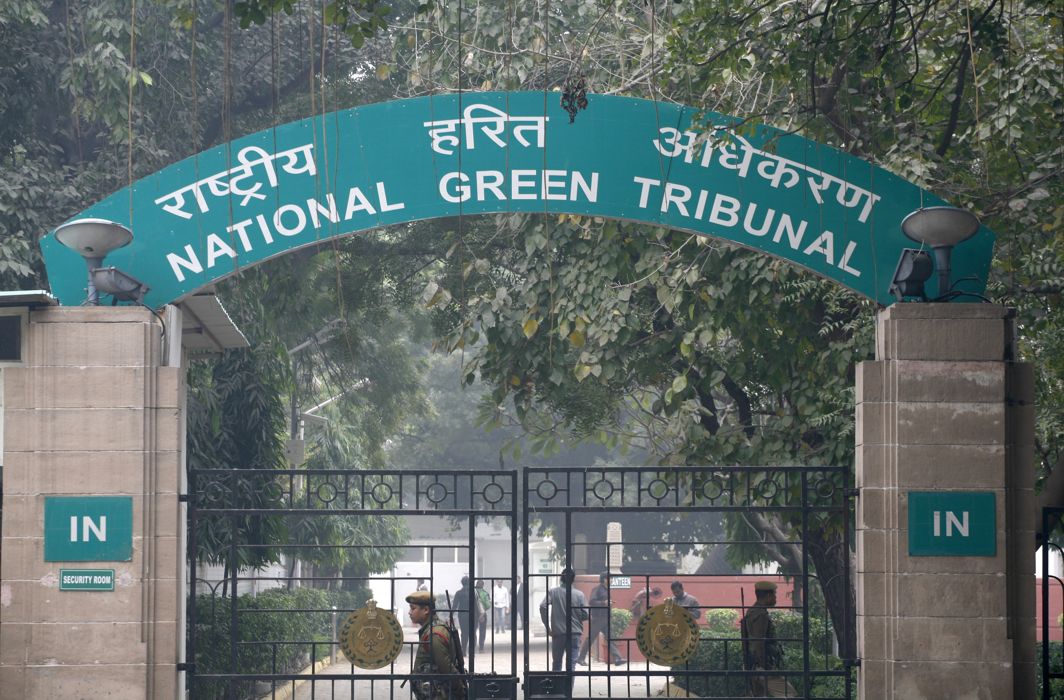The National Green Tribunal (NGT) directed the Ministry of Environment, Forest and Climate Change (MOEF&CC) to submit its reply on the matter of permission of construction of unlimited basements in Mumbai.
The bench of Justice Dinesh Kumar Singh and Dr.Vijay Kulkarni heard an application filed with the prayers :-
that Regulation 37(7) of Development Control and Promotion Regulations for Greater Mumbai- 2034, which is a part of Mumbai Development Plan- 2034, be quashed because it permits unlimited basements to be made, which is environmentally detrimental, as it would make the city of Mumbai vulnerable to heavy air pollution, traffic congestion, man-made disasters and geological disturbances and expose the city to cyclones and coastal flooding on the face of rising sea levels;
all the basements, constructed after 27.02.2012, in violations of the directions of the Supreme Court in Deepak Kumar’s case be ordered to be demolished and filled with natural earth so as to restore them in original condition;
all the constructions of the basements, which are going on without Environment Clearance and without permission from the Central Ground Water Authority be halted forthwith and the Municipal Commissioner and all other Planning Authorities in Mumbai be directed not to issue any building permissions, including the Commencement Certificates and Occupancy Certificates for such under construction buildings;
and no fresh permission for construction of any basement be given by any Planning Authority for the entire city of Mumbai, unless prior EC has been taken under the head mining and/or permission from the Central Ground Water Authority.
It is urged by the Applicant that several constructions of unlimited basements are being done, which has led to excavating and erecting of up-to 5-level basements, whose total excavations could go up-to 60 feet deep, which is making the city vulnerable to climate change and rising sea level, which has converted the city into a dust chamber as tens of thousands of concrete mixers and huge dumper trucks added to the massive traffic jams in the city while spewing fine cement dust. In these conditions, the environment impact assessment study is necessary before granting permission for such construction of basements. Mumbai is falling in Seismic Zone- 3 and this activity would lead to tragedy. This kind of construction is also having adverse impact on ground water aquifers and enormous air pollution.
The main emphasis has been given by the Applicant that this kind of excavation, which is involved in construction of 2 or 3 or even further deeper storied car parking, is resulting the huge excavation of soil and therefore, the Judgment of Apex Court in Deepak Kumar’s case will come into play, which says that the extraction in the blocks of less than 5 hectares, separated by 1 kilometer, because of the collective impact will have necessity of a proper environmental assessment plan.
From the argument of Applicant, the Bench noted that the Petitioner wants to press that this kind of construction of underground car parking would be covered under the definition of mining activity, hence the Judgment of the Deepak Kumar’s case would be applicable mandating that for every mining, even if, it is less than one hectare in area, will be requiring environment impact assessment study.
“Since this matter requires us to decide as to whether the construction of underground parking would be covered in the mining activity, as it involves excavation of soil and gravel etc. and whether this activity would be requiring prior EC under 1(a) of Schedule of EIA Notification, 2006, which relates to miner minerals?”
In our opinion, light can be thrown on this by the MoEF&CC/ Respondent No. 1. Therefore, before proceeding further in this matter, the NGT directed the Respondent No. 1 to submit its reply in this regard within a period of four weeks. Matter will be next heard by the NGT on 11.07.2023.


